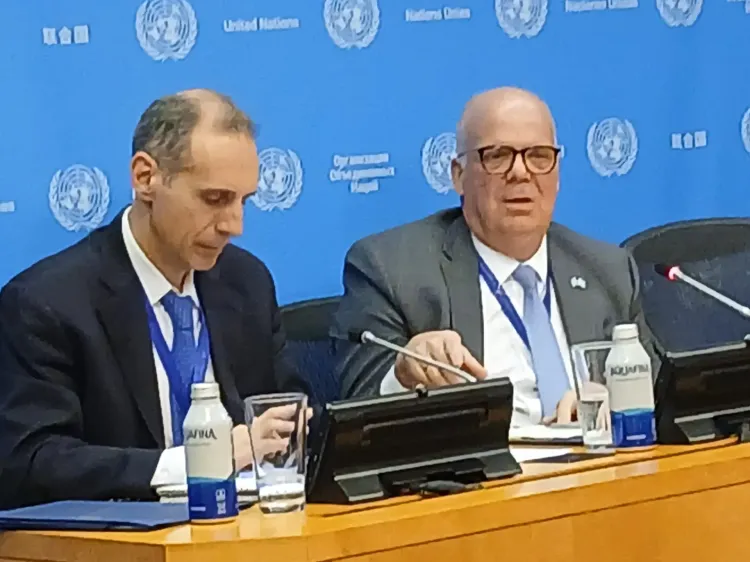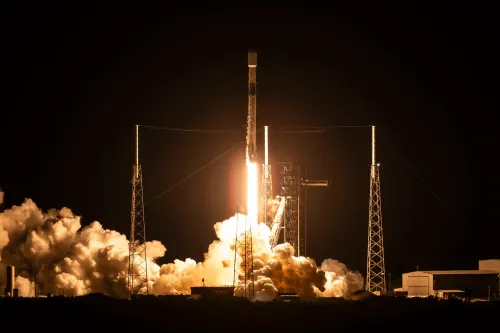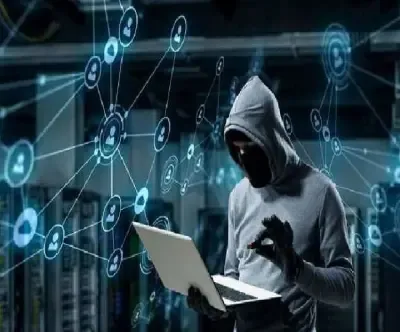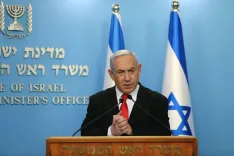Could a Meeting on India-Pakistan Tensions Occur?

Synopsis
Key Takeaways
- UN Security Council President Evangelos Sekeris is concerned about India-Pakistan tensions.
- A meeting to address the situation is being considered.
- India prefers bilateral resolution per the 1972 Simla Agreement.
- The Council can convene despite India's stance; however, action may be limited.
- International peace remains a core mandate of the UN.
United Nations, May 2 (NationPress) Evangelos Sekeris, the President of the UN Security Council, has expressed significant concern regarding the escalating tensions between India and Pakistan, indicating that a meeting to address the situation could be on the horizon.
When questioned on Thursday about the likelihood of a gathering concerning the intense issues in South Asia, he responded, "Using simple logic, this is something that could potentially occur."
Sekeris, who is Greece's Permanent Representative to the United Nations, made these remarks during a press briefing following his assumption of the rotating presidency for the current month.
India traditionally opposes a Council meeting regarding this matter, as it views disputes with Pakistan as bilateral issues governed by the 1972 Simla Agreement, which asserts that no external parties should intervene.
Nevertheless, the Council possesses the authority under the UN Charter to convene discussions on the matter.
Practically speaking, however, the Council will likely refrain from taking decisive action, as all permanent members—except possibly China—would prefer not to engage directly, respecting India's stance.
Sekeris acknowledged that Pakistan holds a position as an elected member of the Council.
He admitted, "It's a challenging topic, yet we remain open to any requests for a meeting. Should a Security Council meeting occur in any format, we will certainly engage in discussions, as President, in a manner that aligns with our mandate."
He further noted that such a meeting could serve as a "platform for expressing perspectives, which might aid in easing tensions."
"We are indeed very worried about the intensifying bilateral conflicts," Sekeris remarked.
"If the situation does not show signs of de-escalation, a call for an extraordinary Security Council meeting might be a subsequent step," he asserted, emphasizing that maintaining international peace is fundamentally the Council's duty.
He also mentioned that last month, the Council had strongly denounced the "atrocious" terrorist attack in Pahalgam, a stance echoed by Greece.
"We denounce terrorism in all its manifestations, wherever it occurs," he added.
When asked whether the Council's condemnation of the terrorist act lacked specific details about the perpetrators due to "Pakistan's influence as a member in removing references to The Resistance Front," a group linked to Lashkar-e-Toiba that claimed responsibility for the attack, he stated that commenting on the negotiation phases of a press statement adopted by consensus is not feasible.
"What matters is that this press statement was released because, as you pointed out, having a Security Council member state involved in this conflict would obviously lead to a different outcome," he concluded.









